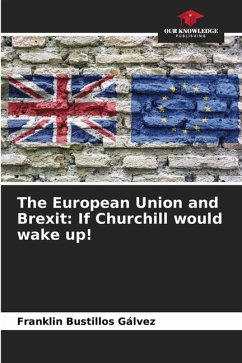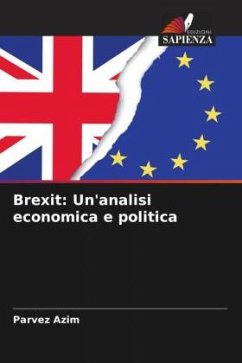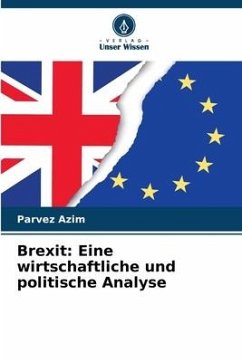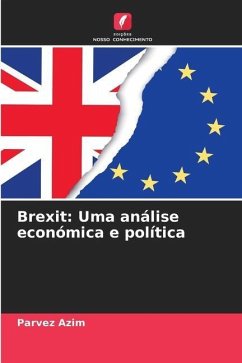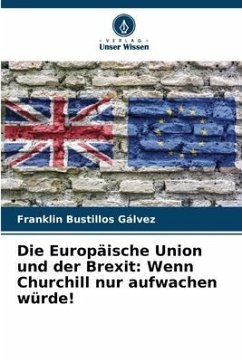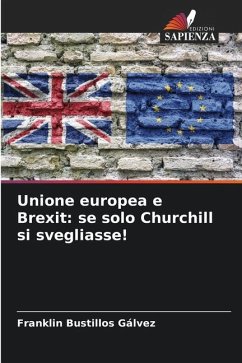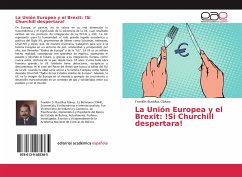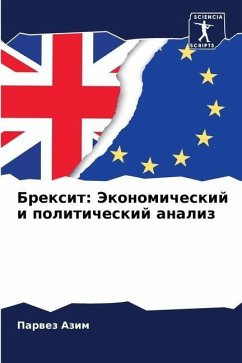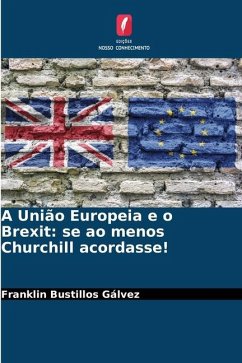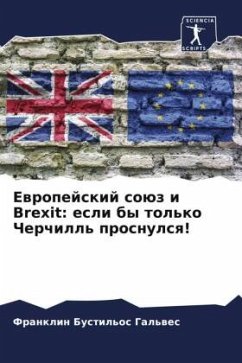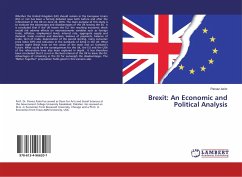
Brexit: An Economic and Political Analysis
Versandkostenfrei!
Versandfertig in 6-10 Tagen
19,99 €
inkl. MwSt.

PAYBACK Punkte
10 °P sammeln!
Whether the United Kingdom (UK) should remain in the European Union (EU) or not has been a fiercely debated issue both before and after the referendum in the UK on June 23, 2016. The main purpose of this study is to evaluate the advantages and disadvantages of the UK leaving the EU. It is concluded that if the UK leaves the EU, the resulting economic shock would risk adverse effects on macroeconomic variables such as foreign trade, inflation, employment levels, interest rate, aggregate supply and demand, trade creation and diversion, balance of payments, balance of trade, term of trade, deprec...
Whether the United Kingdom (UK) should remain in the European Union (EU) or not has been a fiercely debated issue both before and after the referendum in the UK on June 23, 2016. The main purpose of this study is to evaluate the advantages and disadvantages of the UK leaving the EU. It is concluded that if the UK leaves the EU, the resulting economic shock would risk adverse effects on macroeconomic variables such as foreign trade, inflation, employment levels, interest rate, aggregate supply and demand, trade creation and diversion, balance of payments, balance of trade, term of trade, depreciation of the pound sterling, rising consumer price index (CPI) and reduction in the standards of living in the UK. What impact might Brexit have on the union of the state and on Scotland's future. What could be the consequences for the UK, the EU and the USA of the referendum have also been explored in depth.. It has therefore been concluded that it is not in the best interest of the UK to leave the EU. Advantages of remaining in the EU far outweigh the disadvantages. The "Better Together" proposition holds good in this scenario also.



